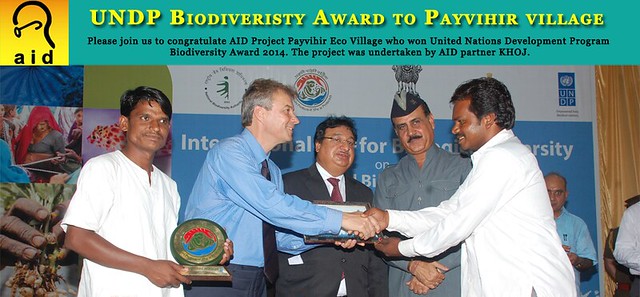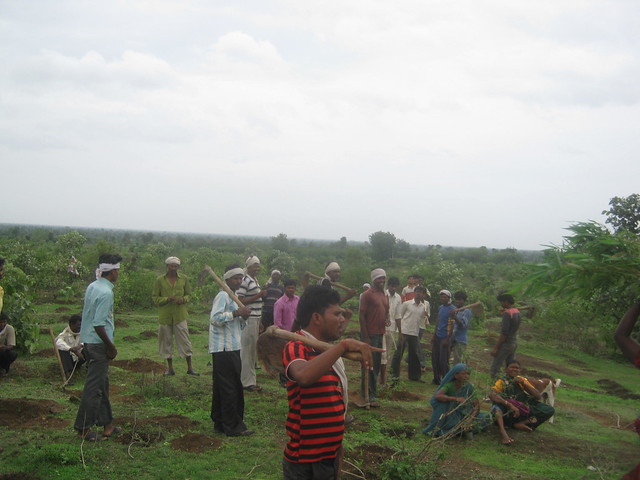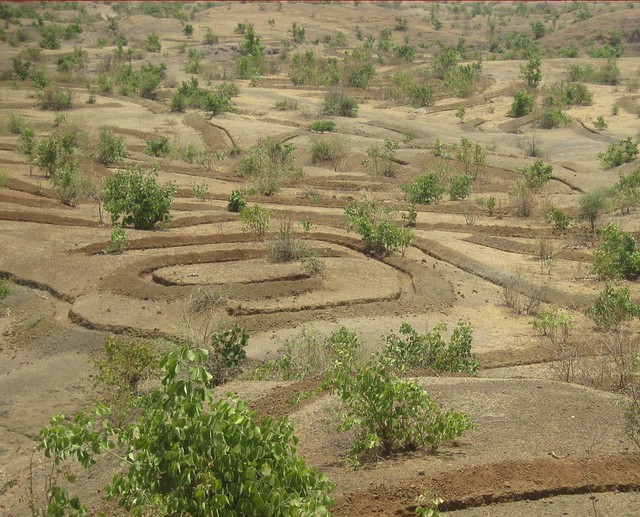By TCN News,
In May 2014, the village of Payvihir won the UNDP biodiversity award for its forest conservation efforts. Payvihir is a village of 110 families (mainly from the Korku and Balai tribes) at the foothills of Melghat region of Amravati district, Maharashtra. The once rich forests have been depleted taking with it the biodiversity of the region and the lack of livelihood led to migration into the cities. Khoj has been working with the communities in the area since 1996 and the catalyst for social change started with a dialogue with the unemployed youth and elders in the community to try to tackle these issue.

AID has supported the work of Khoj, a non-profit since 2008 and the eco villages project since 2011. Volunteers have also connected them to C Srinivasan who works extensively on waste management across India.

Khoj undertook the following work in these eco villages. They facilitated the recognition of 190 hectares of land under Forest Rights Act (2006), which gives rights to the Gram Sabha to regenerate, manage and use non-timber produce from the land sustainably. The villagers, with the help of Khoj planted 50,000 trees and tended to them under Mahatma Gandhi National Rural Employment Guarantee Act (MGNREGA). Villagers also constructed check dams and other soil & water conservation structures (continuous collecting trenches and water absorption trenches) using MGNREGA funds. Village committees have demarcated specific areas for grazing and routinely guard afforested areas. Overgrazing is a major reason for deforestation. Planting fodder has helped with rearing cattle and the cattle dung is used for a piped distribution bio-gas system in the village to reduce dependence on forest for fuel. There was zero waste generation in the village and increased consciousness with the connection to their environment. Small and marginal farmers have moved to sustainable organic agriculture in the area and the water table has also risen which helps with overall water management. Livelihood issues was tackled by one member of each household with different initiatives such as tendu leaf collection or sale of produce and fruits (bamboo, sitaphal, hirda, behada, mahua, mango, neem, custard apple, amla, jamun, teak, arjun) from trees. The afforestation effort have brought back deers, bears, jackals, birds, wild boars, sambars to the area, adding to the now green hills with diverse flora.

“Afforestation and regeneration of lost flora and fauna and improving community engagement in conservation, which led to better livelihoods and improved governance of forest, was taken into consideration for the UNDP award,” says Shriram Dahikar, who heads the biodiversity committee in the village. Shriram and Ramlal Kale represented the Gram Sabha at Port Blair where they received the United Nation’s Development Programme (UNDP) biodiversity award in the decentralized governance category earlier this year.

